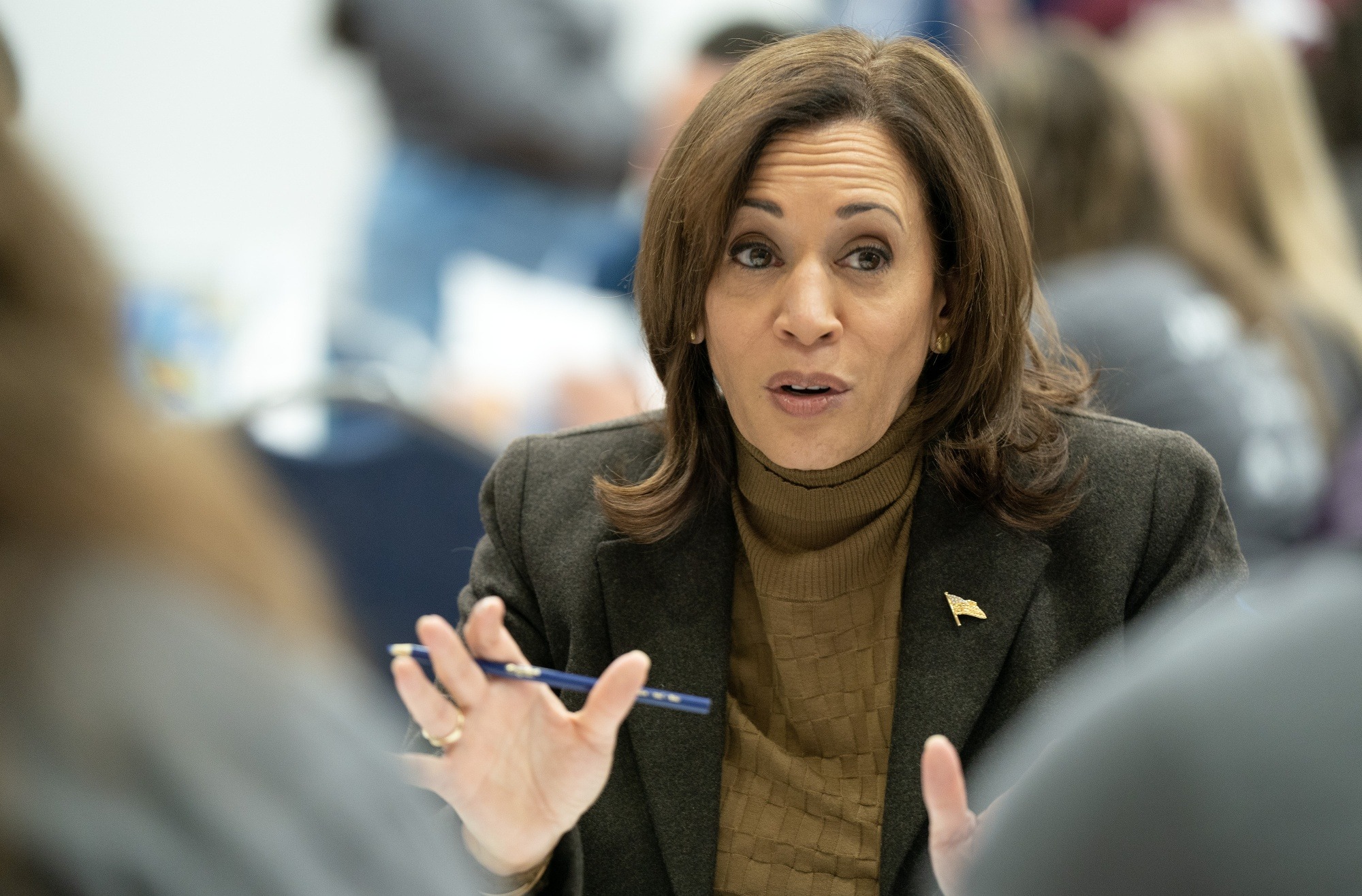In contemplating the potential of assuming the presidency someday, Kamala Harris acknowledged the gravity of her role as Vice President, emphasizing her readiness to fulfill constitutional duties should unforeseen circumstances arise.
The inherent proximity of the vice presidency to the Oval Office has long been recognized, and Harris’s acknowledgment reflects a nuanced perspective on the responsibilities accompanying the position.
Unlike politicians who may downplay the significance of being Vice President, Harris’s statements convey a preparedness to step into the highest office if circumstances demand.

Kamala Harris (Credits: The Guardian)
In a previous interview with the Associated Press in Jakarta, Indonesia, during the ASEAN summit, she expressed her commitment to the constitutional duties of the vice presidency and the clarity required to understand the potential transition to the presidency.
Harris’s stance on the matter emerged during a moment of reflection on the responsibilities entailed in her role. She underscored the assurance that President Joe Biden was in good health, dismissing immediate concerns about the need for her to assume the presidency.
However, her acknowledgment of the inherent understanding among vice presidents about possibly assuming the top job highlighted a pragmatic approach to the position.
The notion that every vice president comprehends the weight of their oath and the potential need to ascend to the presidency echoes a broader awareness within the political sphere.
Harris positioned herself as no exception to this understanding, emphasizing her commitment to the responsibilities accompanying the oath of office. Her acknowledgment of the duty to be prepared for any eventuality demonstrated a sense of responsibility beyond mere ceremonial roles.
The interview setting in Jakarta provided a backdrop to Harris’s statements, indicating that discussions on the vice presidency and its implications are not confined to domestic settings.
As the Vice President engaged with global leaders at the ASEAN summit, her remarks resonated beyond national borders, portraying a leader cognizant of her role in domestic and international contexts.
While Harris expressed optimism about President Biden’s well-being, her acknowledgment of the potential transition demonstrated a balance between reassurance and preparedness.
The Vice President’s role involves supporting the president and being vigilant about the broader responsibilities that may emerge. Harris’s comments reflected a pragmatic approach, recognizing the uncertainties inherent in politics and governance.
The complexity of the vice presidency, often described as being a heartbeat away from the presidency, was encapsulated in Harris’s remarks. Beyond the symbolic nature of the role, her statements underscored the tangible duties and considerations that vice presidents grapple with.
By openly discussing her preparedness, Harris contributed to a broader conversation about the dynamics of presidential succession and the significance of the vice presidency in shaping the nation’s leadership.
Kamala Harris’s acknowledgment of her readiness to assume the presidency, if required, portrayed a nuanced understanding of the vice presidency’s responsibilities.
Her statements reflected a commitment to the constitutional duties of the office and a recognition of the broader implications of her role on both the national and international stages.
As discussions about presidential succession continue, Harris’s perspective adds depth to the discourse surrounding the vice presidency and its pivotal position in the American political landscape.























